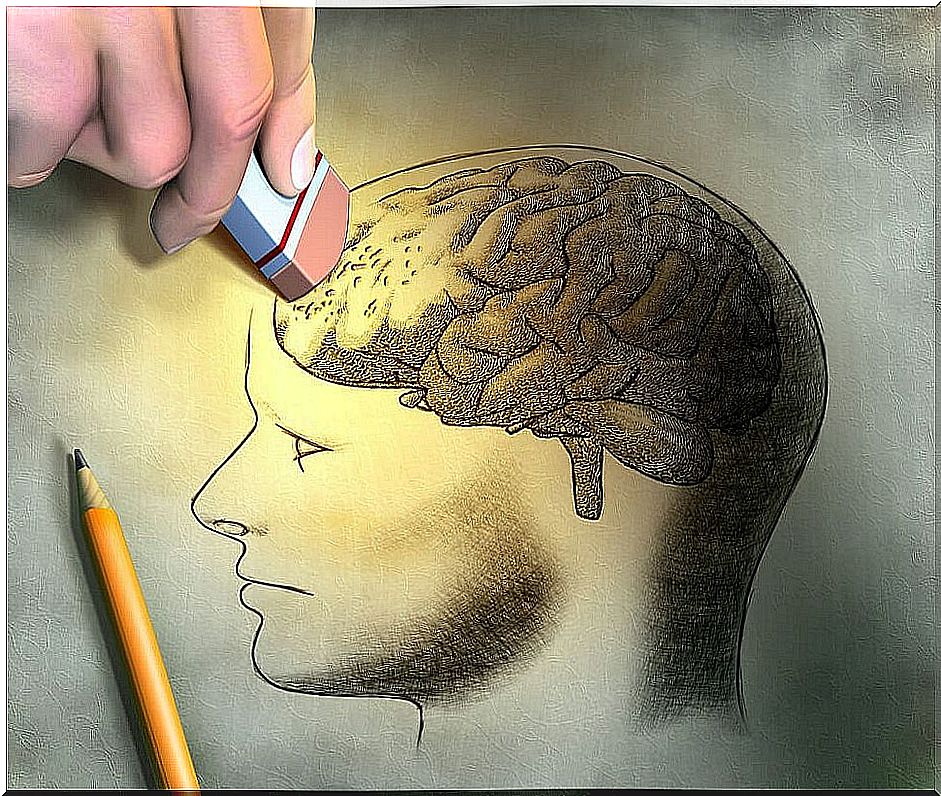Amnesia: Symptoms And Prevention
Amnesia refers to the partial or total loss of memory. In a more technical way, it can be said that it consists of a memory function disorder, during which the person is unable to maintain or remember previously stored information.
To understand what amnesia is, it is important to know exactly what memory is. Therefore, memory can be defined as the ability of our central nervous system (CNS) to learn, organize and fix events from our past.
Another important fact about memory is that, thanks to it, we are able to save data through complex mechanisms that are developed in three stages: encoding, storage and evocation.
Therefore, if a person suffers from amnesia, the patient loses the ability to develop memory and all the processes that this entails.
What Causes Amnesia?

The triggering causes of this disorder are organic or functional causes. As for the organic causes, we can include those factors that cause damage to the brain, whether they are diseases, trauma or the use of some drugs such as sedatives.
On the other hand, functional causes include psychological factors, such as defense mechanisms. This is what is known as post-traumatic syndrome amnesia.
Apart from this general classification, we can find other causes such as, for example, amnesia that occurs after anesthesia. This is because anesthesia disrupts memory consolidation mechanisms.
Finally, a picture of amnesia can also occur spontaneously. An example of this is transient global amnesia. In these cases, the prevalence is higher in middle and elderly people, especially in men. It usually lasts less than 24 hours.
Symptoms
The symptoms of amnesia basically focus on the loss of access to memory. A person with this disorder may be unable to remember all kinds of memories such as dates, names or general information from their own biography and past.
With this information we can say that the two main characteristics of amnesia are:
- Difficulty learning new information after the onset of amnesia. This situation is known as anterograde amnesia.
- Difficulty remembering past events and information that used to be familiar in nature. In this case, the amnesia is retrograde.
Keep in mind that memory loss has nothing to do with intelligence, general knowledge, awareness, attention span, judgment, personality or identity of the person.
Also, amnesia should not be confused with dementia, as they are two different terms. In addition to memory loss, dementia also has other cognitive problems that amnesia does not present.
Other symptoms and signs that we can highlight are:
- False memories, that is, patients are in collusion. They create entirely invented memories or from genuine memories misplaced in time.
- Confusion or disorientation
- Deterioration of personal relationships.
How can it be prevented?

Because any damage that affects the brain can be reason enough for this disorder to develop, it is of the utmost importance to carry out a series of preventive measures for brain injury.
Among them, avoiding alcohol consumption in excess and in the long term, since it can cause a deficiency of thiamine or vitamin B1. Also protective measures, such as wearing a good helmet when riding a bicycle or motorcycle, are very important to prevent amnesia.
In addition, it is essential to treat any infection quickly to decrease the possibility of spreading to the brain. It is extremely important to seek immediate medical treatment in the event that the person experiences symptoms that suggest a stroke or brain aneurysm.
These alarming symptoms can be a severe headache, a numb side, or paralysis.









